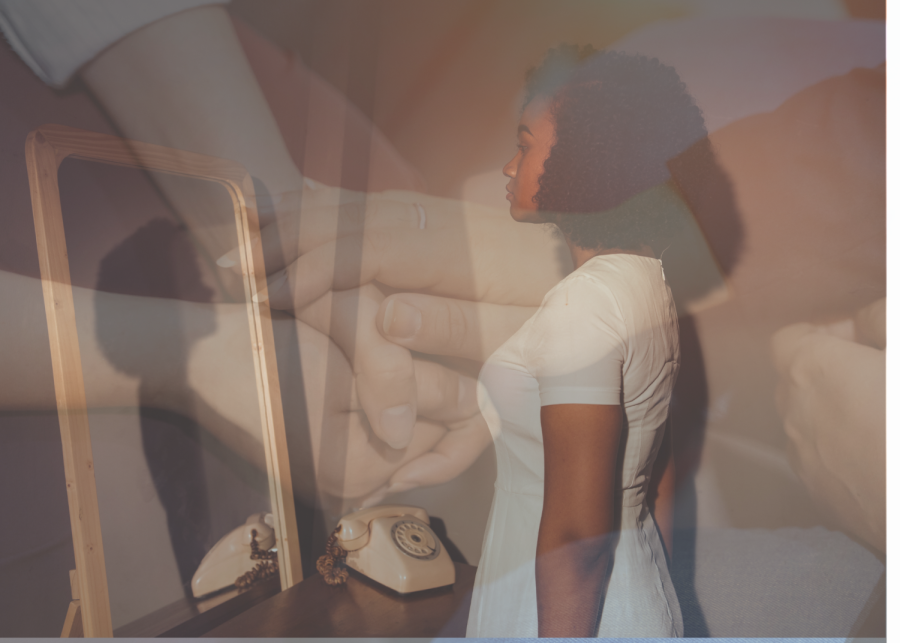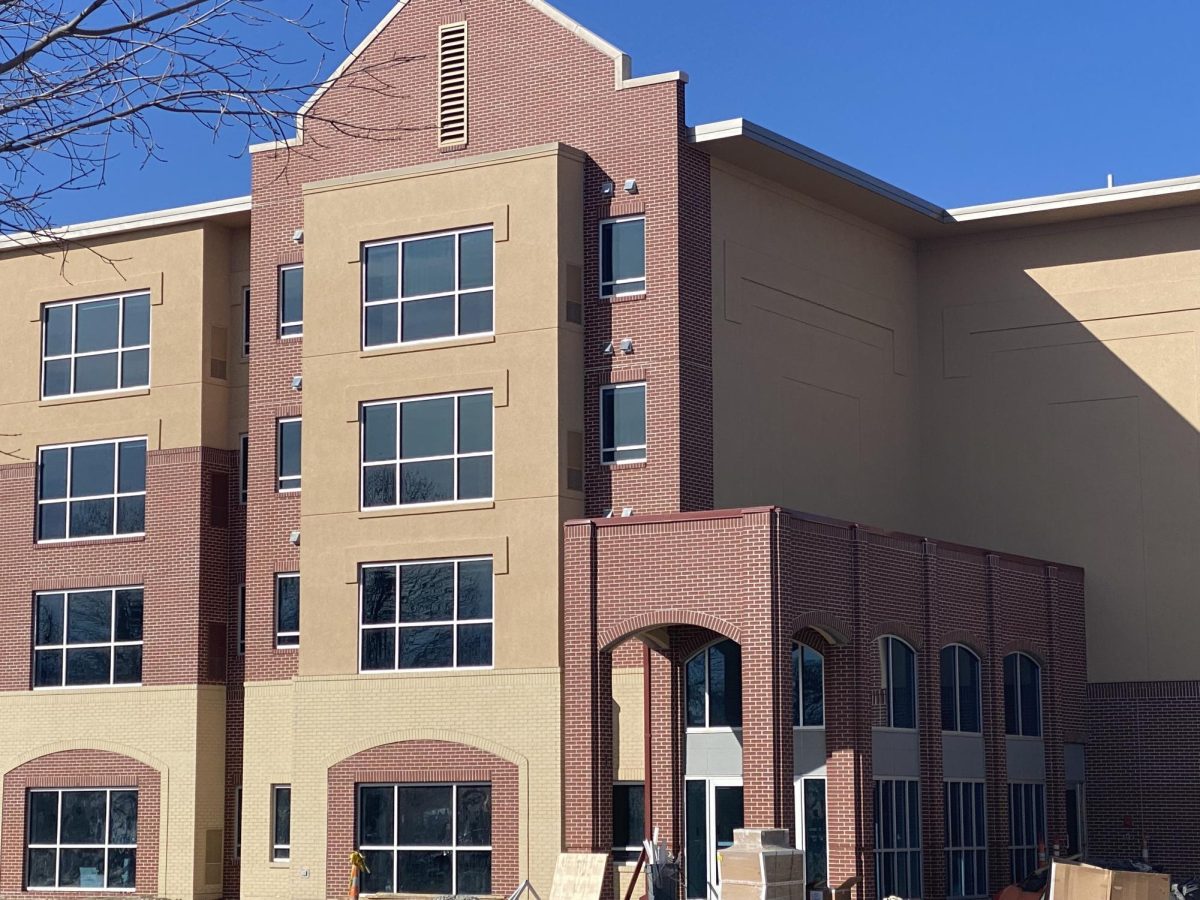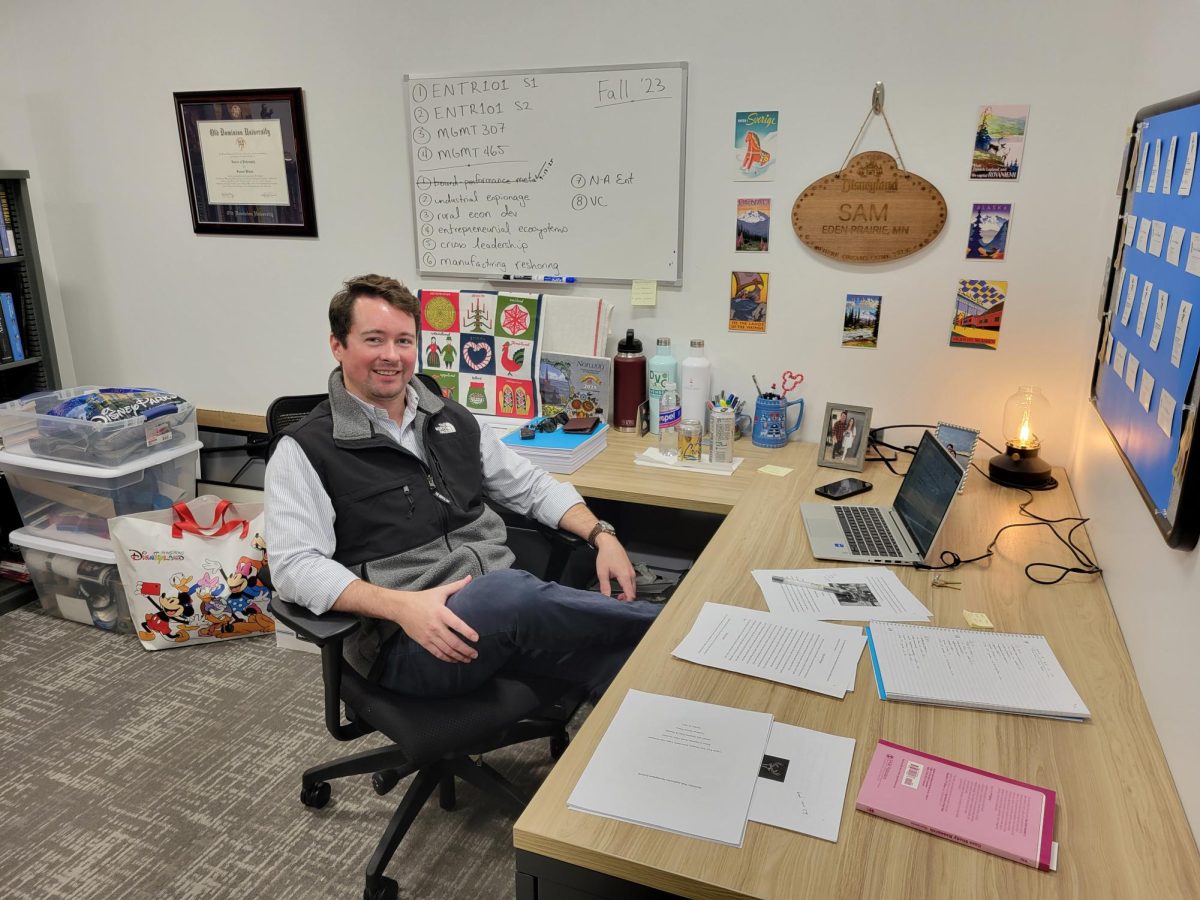Holidays: A Love/Hate Relationship

Graphic designed and provided by Jadyn Forbes.
December 15, 2022
It’s that time of year again — the countdown to winter break, the end of finals, and going home. It can be either the most exciting time, or the most dreaded time. I know for me it’s a little bit of both. Going home sounds fun, but honestly, I dread it 99% of the time. Why? Because the holidays trigger A LOT of trauma for me and for a lot of other people as well.
So, what is trauma exactly? Trauma is “an emotional response to a terrible event,” like an accident, crime, or death, according to the Discover Mood & Anxiety Program. This can lead to reactions like flashbacks, strained relationships, unpredictable emotions, and physical sickness. Trauma associated with the holidays can make these symptoms especially worse because of the expectation of happiness around the holidays. Even worse, gathering with family can increase anxiety and stress, which exaggerates symptoms as well. It can also bring up old trauma that hasn’t been resolved yet.
While holidays may seem the most wonderful time of the year, they can also be incredibly tough, especially for students. They can activate feelings of depression, anxiety, and other mental health issues. Trauma cycles can become activated and triggered regardless of whether a student knows of them or is dreading going home. It’s important to recognize these symptoms to help reduce their effects as much as possible in order to best preserve students’ mental health. According to tyrahodge.com, signs of trauma include:
- Isolation
- Escalating behavior
- Change in appearance
- Personality change
- Risky behavior
- Sleepless
- Mood swings
Keeping students trauma-free as much as possible is incredibly important to best preserve mental health and ensure preparedness and a good mental state and attitude when coming back to campus after the holidays. Knowing these signs and best practices can help to reduce trauma’s effects and keep students feeling good. Tyrahodge.com recommends these practices to prepare students for their return to campus after trauma:
- Keep the routine consistent to avoid triggering trauma and deregulated behavior among students
- Avoid auditory overload
- Be positive
- Be mindful of school or event celebrations and pre-teach them about changes
- Strong communication with students
- Sharing stories
- Be cautious in questioning about holidays
- Build strong relationships
- Create opportunities
Even though holidays are unavoidable, students can prepare to avoid the effects of trauma. These holidays can cause long-term trauma and can be dangerous for health, so it’s important to recognize this from the beginning and implement practices to preserve your mental health. Any trauma can be fought and kept away if you are aware of it and know the signs.






